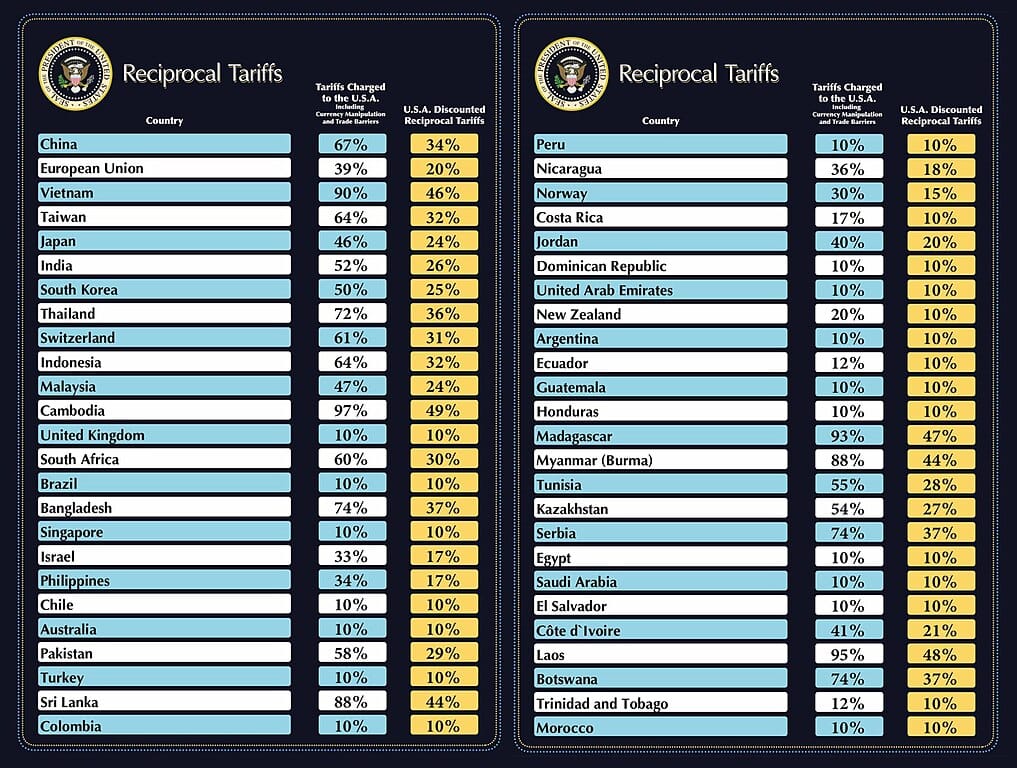Trump Administration Reports Over 50 Countries Seeking Tariff Talks: A Global Trade Reset in Motion

On Sunday, April 6, 2025, top officials in the Trump administration revealed that more than 50 countries have reached out to the White House to initiate negotiations over President Donald Trump’s sweeping tariffs. The announcement comes just days before the next phase of the tariffs—set to take effect on Wednesday—will impose reciprocal duties as high as 50% on imports from key trading partners. Treasury Secretary Scott Bessent and Commerce Secretary Howard Lutnick defended the administration’s strategy, emphasizing that the tariffs are part of a long-term plan to “reset global trade” and address what they describe as unfair practices by other nations.
While the outreach from foreign governments underscores mounting international pressure to mitigate the economic fallout of Trump’s trade policies, the administration remains firm in its commitment to implementing the tariffs. Global markets have reacted negatively to the uncertainty, with economists warning of potential recession risks and long-term disruptions to global supply chains.
The Tariffs: A Recap
President Trump’s tariff strategy, announced on April 2 during a Rose Garden event dubbed "Liberation Day," represents one of the most aggressive trade measures in modern U.S. history. Key elements include:
- Universal Tariff: A baseline 10% tariff on all imports began on April 5.
- Reciprocal Tariffs: Higher duties ranging from 20% to 50% will target countries with significant trade surpluses with the U.S., including China (34%), Canada (25%), Japan (24%), and Germany (20%). These are scheduled to take effect on April 9.
- Sector-Specific Tariffs: A 25% tariff on foreign-made vehicles and auto parts will begin later this month.
The administration has framed these measures as essential for correcting trade imbalances, revitalizing American manufacturing, and reducing reliance on foreign goods.




